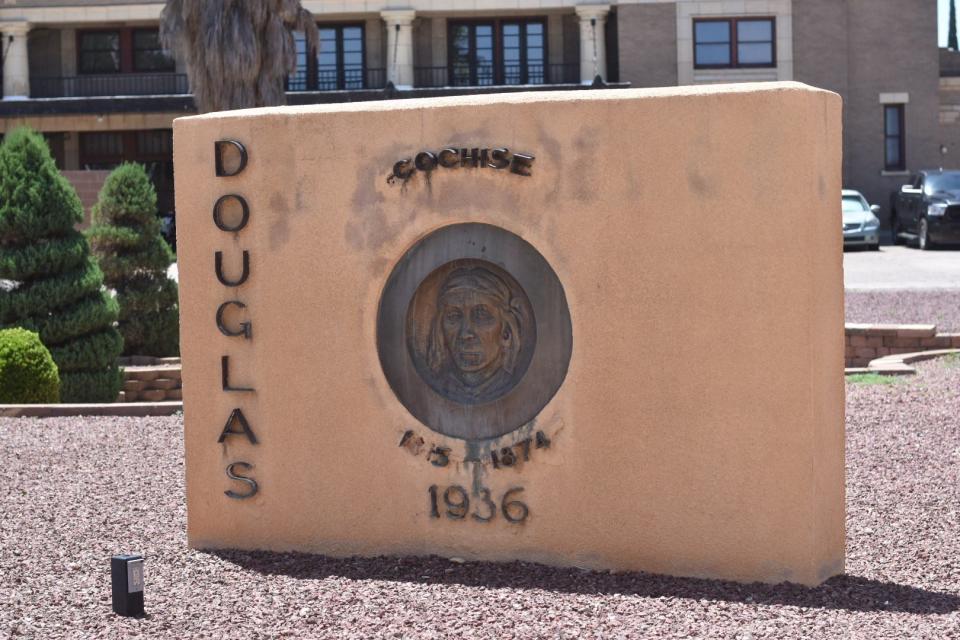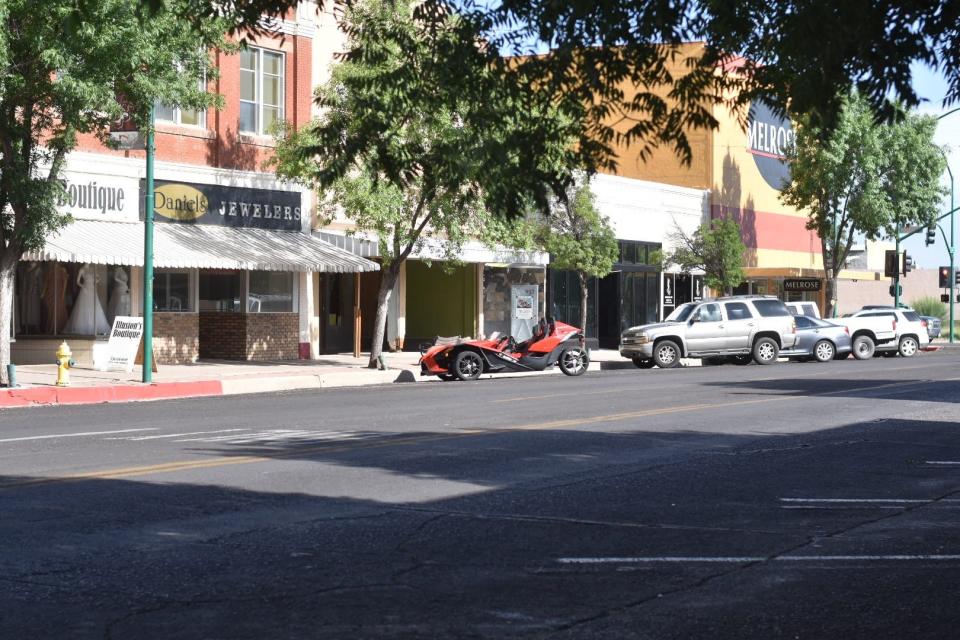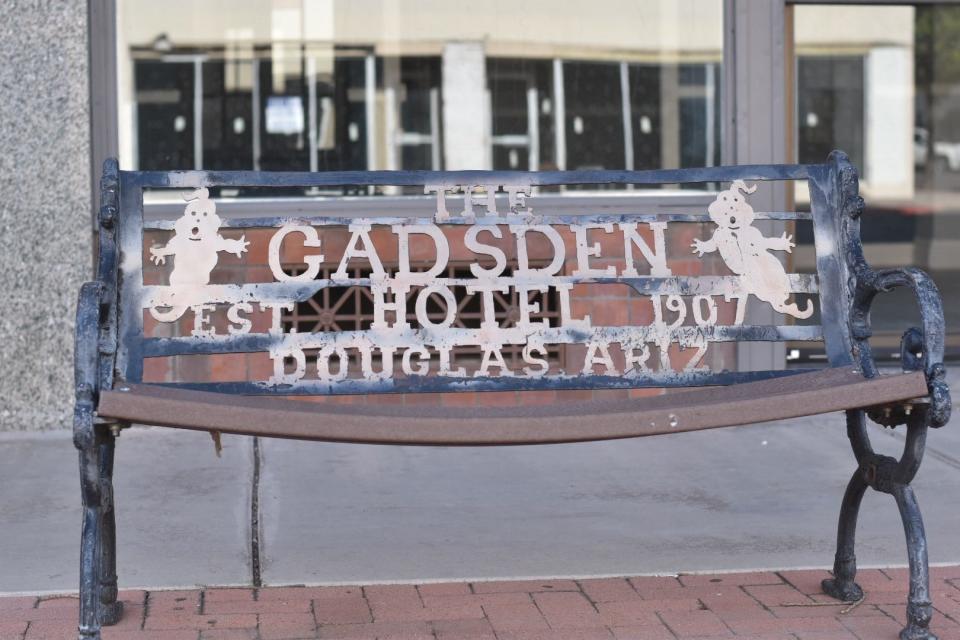High-speed internet comes to Douglas, other rural Arizona communities through grant
Fiber internet is slated to come to many rural southern Arizona communities like Douglas, a small border city that has missed out on business opportunities due to lack of widespread broadband internet access.
The city was one of 14 rural communities and areas in Arizona awarded thousands of dollars in grant funding to construct or improve broadband infrastructure.
Through the Arizona Broadband Grant Program, Cox Communications received $8.2 million to bring a fiber network to Douglas, which will serve 8,000 businesses and residents. Cox will invest an additional $2.3 million for the project and to lay 8.4 miles of fiber-optic cables to Cochise College’s Douglas Campus.
“We've had struggles getting grants or small business operations coming in because of the lack of broadband,” said Douglas Mayor Donald Huish. He said this grant was the only solution. “We are losing out on some of these things that would really benefit the community.”
Diminishing resources: Green Valley's only hospital closes amid financial woes
Huish said that there were talks to construct an educational center in town. He was also approached about starting an incubator for tech start-ups, but without widespread broadband these opportunities were not feasible.

Since 2011, the population has been steadily decreasing and unemployment has increased in Douglas.
According to most recent census data, unemployment increased to 13.1% in 2020 from 9.1% in 2010, while the population has steadily declined from 17,363 in 2011 to 16,292 in 2020.
However, now with funding coming to Douglas for broadband, Huish said the town’s future looks bright.
Through the Arizona Broadband Development Grant Program, local communities will be able to construct or improve broadband infrastructure. Funding comes from the American Rescue Plan Act, according to a press release from Gov. Doug Ducey.
Other southern Arizona towns and counties also received grants for projects including Willcox, Patagonia, Safford, Yuma County and San Luis. In total, the Arizona Broadband Development Grant Program allocated $75.7 million to 14 rural counties and $23.6 million to six urban counties around the state.
Heather Floyd, a spokesperson for Valley TeleCom Group, a broadband service provider, said the main barrier to addressing lack of broadband has been cost.
Floyd said in Willcox, a small city known for cattle raising in the southeastern part of the state, it costs about $7,000 per home to connect to broadband, taking about nine years for the company to break even.
She noted that in the smaller town of Patagonia, the average cost per home is $5,000 with a 6.5-year time to recoup the cots of construction.
Funding could be a 'game changer' for Cochise College
This grant will also be a “game changer” for Cochise College, which has a campus 10 miles from Douglas and 10 miles from Bisbee, said James Dale (J.D.) Rottweiler, the college’s president.

Cox plans to lay 8.4 miles of fiber-optic cables to Cochise College’s Douglas Campus which will enable greater bandwidth and faster speeds, a press release stated.
The 58-year-old campus is “an oasis in the desert” and has to be self-sufficient. Not only does the campus have its own water and sewer systems, but it also has its own internet company, Rottweiler said.
The college currently uses a microwave system that connects the college to the networks in Bisbee and in Sierra Vista, Rottweiler said.
The college houses 150 students who need reliable internet for school, TV, music and radio. While the system works better than previous internet options, the system is far from perfect.
Rottweiler said that internet connectivity has been “an ongoing struggle.”
He noted that the system’s bandwidth is not as good as fiber, and with strong winds the microwave dishes will move slowing down internet speed, while lightning strikes on one of the mountains might mean the college loses a tower.
For this reason, the college has been searching for a fiber solution over the last four or five years.
“For us, the fiber coming in —even as good as our microwave system is— this will be four times faster,” Rottweiler said.
However, while the college’s internet may have been spotty, it was far better than what many community members in Douglas had in their homes, he said.
Oncoming challenges: Overturning Roe v. Wade brings challenges for women in rural Arizona
For Douglas residents, the speed and reliability of their Wi-fi connections depend on where they are located.
One person who goes by the name Stephanie, said she had to call a technician to come out to her house six times in one month. Because she worked from home, she decided to move to a neighborhood near the Douglas Golf Course for better internet connectivity.
Gabriela Esparca, a local waitress, said her internet speed is often fast but in summer she notices her internet slows down and lags more often.
Iris González, a bartender working downtown during a slow time of day, said the number of internet provider options was limited.
“Border town options are limited. It (the internet) goes out once in a while,” she said.
Even Huish said his internet could be better.
“Where I live, it’s not very good,” he said. “I don’t have access to Cox right now,” he said, noting that his options were Qwest, which was acquired by CenturyLink in 2011, or Simply Bits, a Tucson-based internet service provider.
During the COVID-19 pandemic, the lack of access to reliable internet was exacerbated. Rottweiler said the college’s campuses would open their parking lots to community members who needed good wi-fi connection for school.
He said cars would crowd the Douglas campus parking lot with residents accessing virtual classes and virtual meetings as in-person classes, on-site work and in-person events were cancelled and postponed due to the pandemic.
And although this need for reliable internet was exacerbated during the pandemic, it was nothing new.
Through census data, the Southeastern Arizona Governments Organization, an economic development nonprofit, found that 8,000 residents across Cochise, Graham, Greenlee, and Santa Cruz counties reported having no access to internet or a computer
Stephen Peterson, the organization’s economic development program manager, said the issue of broadband access was at the top of their priorities.
Newfound hope for economic growth in the region
Peterson said that access to broadband infrastructure is “everything in terms of improving prosperity for our region and the ability to bring jobs in."
This is especially important when private companies are looking to expand.
Peterson said economic development offices often receive calls from site selectors, asking a series of questions determine where they should expand. One of the questions typically includes broadband internet access.
“Huge gaps in service (is) not going to be good for a site selector trying to decide on where to expand,” Peterson said.
Now with gigabyte internet coming to Douglas, the mayor anticipates that if the town can have a downtown educational center, the University of Arizona and Cochise College could offer classes closer to residents, providing them with more access to educational opportunities.

“Douglas is very family-oriented … it’s a hard-working community and it is ready to expand,” he said.
In a press release, Cox said it will also provide a Cox Innovation Center, which will host computers, printers and the latest technology for student learning —the location to be determined— and distribute 100 devices and low-cost internet service for qualified residents and provide a long-form video to promote the community and digital equity.
Coverage of southern Arizona on azcentral.com and in The Arizona Republic is funded by the nonprofit Report for America in association with The Republic.
Reach the reporter at sarah.lapidus@gannett.com.
Subscribe to azcentral.com today. What are you waiting for?
This article originally appeared on Arizona Republic: Grant brings high-speed internet to Douglas, rural Arizona communities

